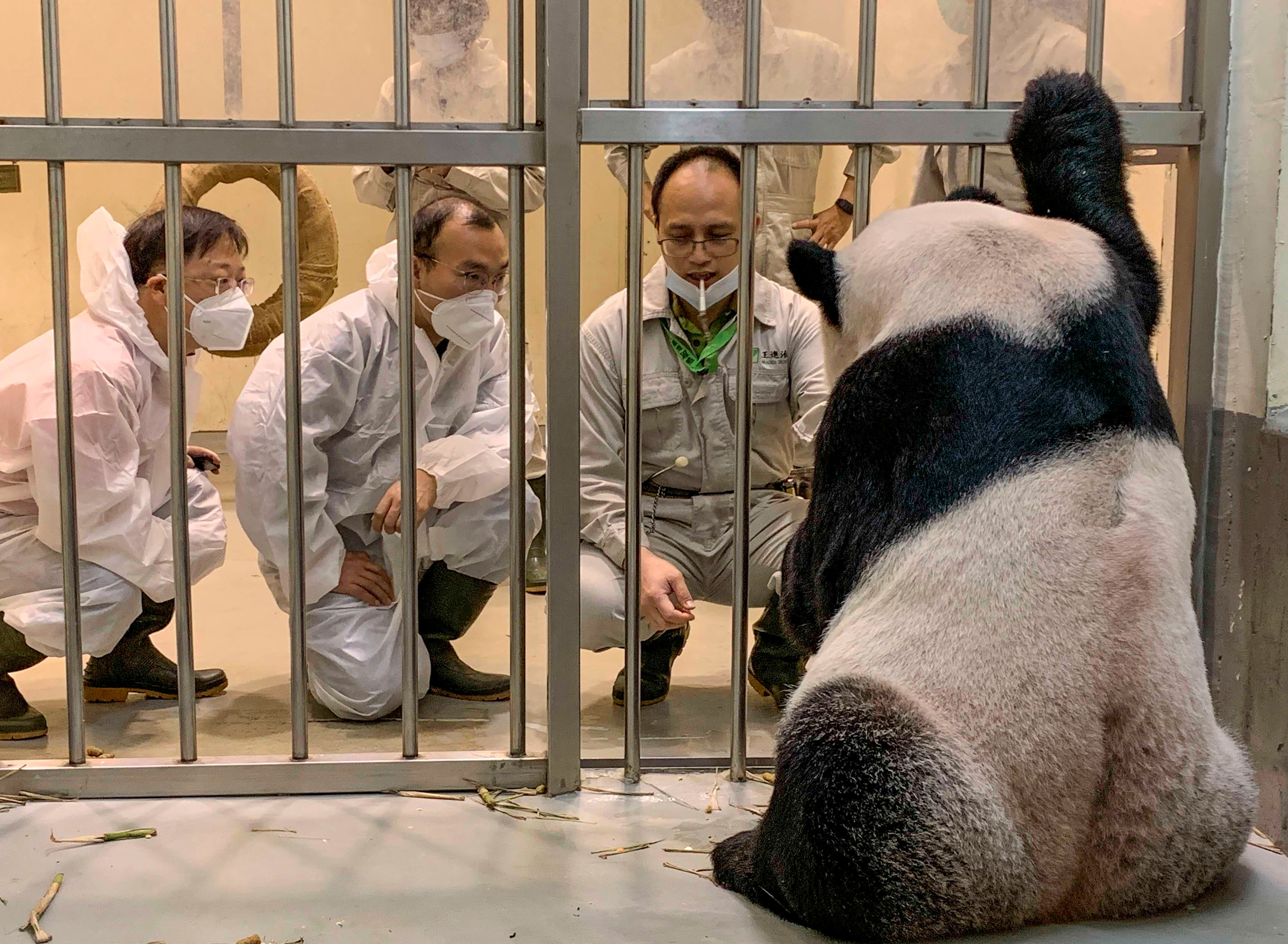Taiwan welcomes panda experts from Chinese mainland in moment easing diplomatic tensions
Giant panda’s brain tumour progressing rapidly since it was first diagnosed in September

Your support helps us to tell the story
From reproductive rights to climate change to Big Tech, The Independent is on the ground when the story is developing. Whether it's investigating the financials of Elon Musk's pro-Trump PAC or producing our latest documentary, 'The A Word', which shines a light on the American women fighting for reproductive rights, we know how important it is to parse out the facts from the messaging.
At such a critical moment in US history, we need reporters on the ground. Your donation allows us to keep sending journalists to speak to both sides of the story.
The Independent is trusted by Americans across the entire political spectrum. And unlike many other quality news outlets, we choose not to lock Americans out of our reporting and analysis with paywalls. We believe quality journalism should be available to everyone, paid for by those who can afford it.
Your support makes all the difference.Two Chinese experts have arrived in Taiwan to treat a sick panda, in what is being called a rare diplomatic win for the two sides.
Veterinary experts Wei Ming and Wu Honglin arrived at the Taipei zoo on Tuesday to look at ailing panda Tuan Tuan in Taipei. The panda is suspected to be suffering from a malignant brain tumour.
Taiwan’s Central News Agency (CNA) reported that the beloved panda’s brain tumour has been progressing rapidly since it was first diagnosed in September.
Dr Wu and Dr Wei are from the China Conservation and Research Centre for the Giant Panda in Wolong, southwest China’s Sichuan province.
State-run Global Times reported that Dr Wu has been engaged in disease prevention for giant pandas and scientific research into the breeding of giant pandas at the centre since July 2001. Dr Wei specialises in feeding management and artificial rearing of giant pandas.
Tuan Tuan, an 18-year-old male giant panda and his mate Yuan Yuan, were gifted to the zoo in 2008, the Associated Press reported, during a time of warming relations between China and Taiwan, which split amid the civil war in 1949.
Since then, ties between the two sides have deteriorated sharply.
China often sends pandas as a goodwill gesture to countries in what has been termed “panda diplomacy”. But it maintains ownership over the animals and any offspring they produce.
The Taipei zoo, in a statement, said an MRI of Tuan Tuan’s brain showed lesions on his brain had grown, indicating that the disease was “progressing rapidly”.
Eve Wang, animal section chief of the Taipei Zoo, was quoted as saying by Global Times that although the diagnosis for Tuan Tuan had not yet been confirmed, it was highly probable he has been suffering from a brain tumour.
She said that, based on his physical condition, it can be highly risky for the panda to go through an invasive examination to obtain the final diagnosis.
Ma Xiaoguang, spokesperson for the Taiwan Affairs Office of China’s State Council, said that after receiving an invitation from the Taipei zoo, the China Conservation and Research Centre made preparations to send two experts to help diagnose and treat Tuan Tuan.
Last week, before the arrival of the Chinese experts, zoo officials had said that it was impossible to predict how long Tuan Tuan can survive.
Since being gifted to Taiwan by China, Tuan Tuan and Yuan Yuan have given birth to two cubs: Yuan Zai in 2013 and Yuan Bao in 2020.
When the Taipei zoo posted on its social media about Tuan Tuan’s sickness, local media said people from both sides of the Taiwan Strait expressed concern and best wishes to the panda.
Join our commenting forum
Join thought-provoking conversations, follow other Independent readers and see their replies
Comments